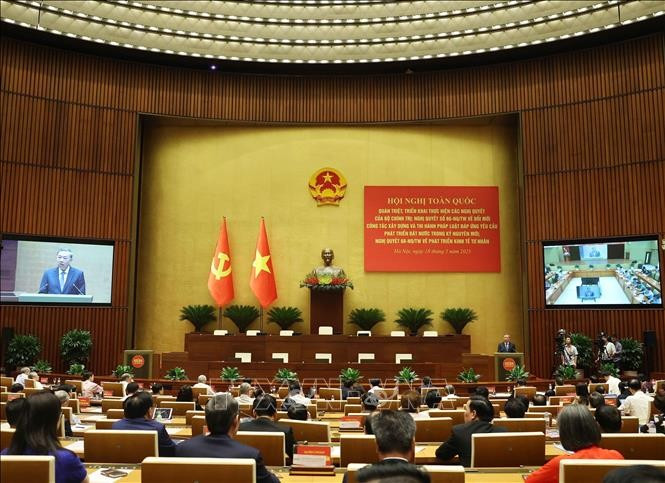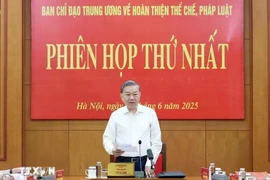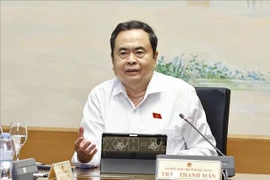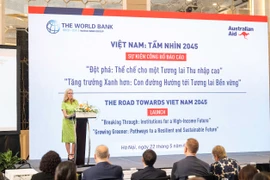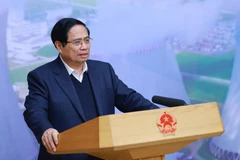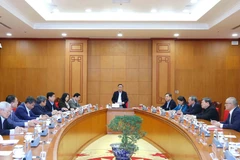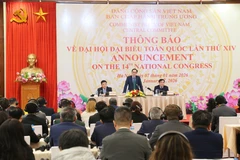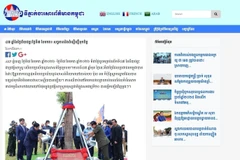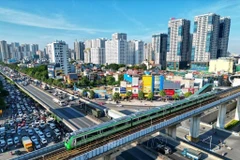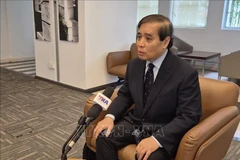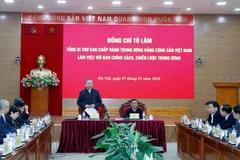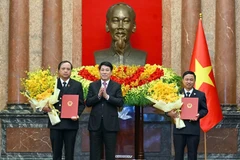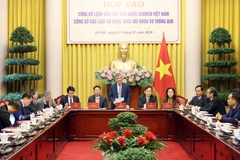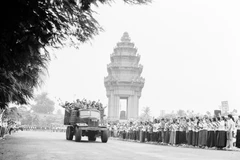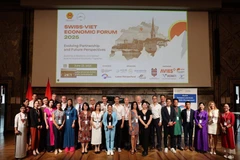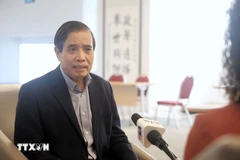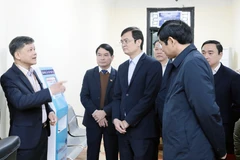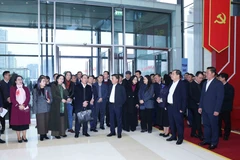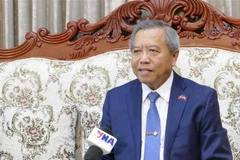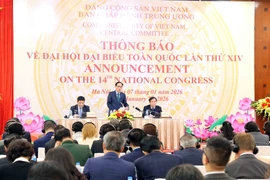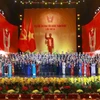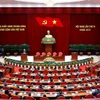Hanoi (VNA) – Party General Secretary To Lam signed the Politburo’s Resolution No. 66-NQ/TW on April 30 on the reform of law-making and enforcement processes to meet the country's development requirements in the new era.
The Politburo’s view is to pave the way, unlock all available resources, and transform institutions and laws into a competitive advantage, forming a solid foundation and strong driver for development. This will create the necessary space to foster double-digit economic growth, improve the quality of life for the people, and ensure national defence, security, and foreign relations.
Resolution 66 was formulated at this time in response to ongoing limitations and shortcomings in law-making and enforcement. Some of the Party’s policies and orientations have yet to be fully or promptly institutionalised. Law-making mindset in certain areas remains overly focused on management, with the quality of laws lagging behind practical demands. There are still overlapping regulations that hinder effective implementation, and decentralisation and delegation of authority remain insufficient. Administrative procedures also remain cumbersome.
Professor, Dr Hoang The Lien, former Permanent Deputy Minister of Justice and member of the Scientific Council of the National Assembly Standing Committee, stated that pushing forward institutional and legal reforms is a key priority for building a comprehensive and effective system of laws that will drive the country’s development. This overarching system must ensure three basic requirements - sustainable general order, rule of law, and development.
Sustainable general order is the territorial integrity, the right to self-determination of the nation, the people’s mastery, the Party’s leadership, and the great national unity. This is the leading essential foundation.
Rule of law requires the supremacy of the Constitution and laws, in line with the values of democracy, fairness, civilisation, justice, human rights, and citizens’ rights that the nation and humanity strive for.
Development calls for fostering creativity, advancing science and technology, embracing innovation, and creating favourable conditions for new ideas to thrive. It also includes deep and intensive international cooperation and integration.
To meet these requirements, Vietnam needs a comprehensive, synchronous, and feasible framework for institutional and legal reform, accompanied by decisive, consistent implementation, and unwavering efforts from the entire political system. Public support is crucial, and once the process begins, it must be carried through to achieve the set goals, avoiding doing things halfway.
A complete and fully developed resolution on the reform of law-making and enforcement to meet the development needs of the nation in the new era represents the "comprehensive, synchronous, and feasible design for institutional and legal reform" mentioned earlier. The aim is to prepare the country for a new era - the era of rapid, robust development and prosperity under the Party’s leadership.
Resolution 66 is not only an independent policy, but also a continuous thread connecting with several other key resolutions, including Resolution No. 57-NQ/TW on breakthroughs in the development of science, technology, innovation, and national digital transformation; Resolution No. 59-NQ/TW on international integration in the new context; and Resolution No. 68-NQ/TW on the development of the private economic sector.
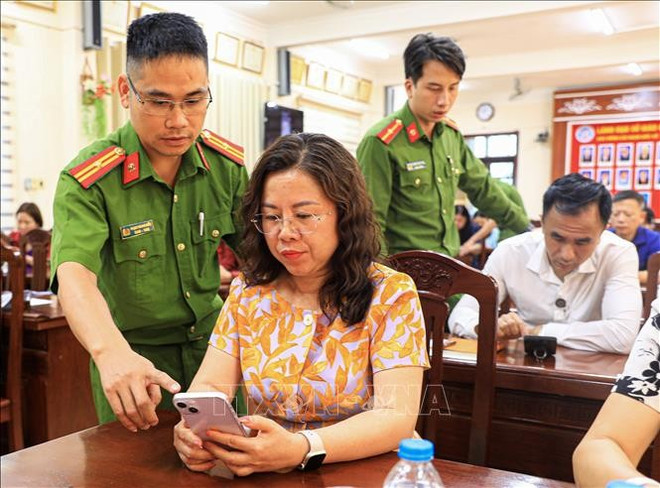
In relation to Resolution 57, Resolution 66 focuses on creating laws regarding science, technology, innovation, and digital transformation, thereby providing a legal framework for addressing new, non-traditional issues such as artificial intelligence, digital transformation, green transition, data resource exploitation, and cryptocurrency. These aim to form new growth drivers and promote the development of new production forces and industries.
With respect to Resolution 59, Resolution 66 stresses the importance of improving international cooperation and international law. It calls for perfecting mechanisms and improving capacities of Vietnamese agencies and organisations to fully meet international legal obligations, shaping the international legal order, and actively participating in the creation of international legal frameworks. It also encourages effective and flexible use of advantages derived from international treaties to which Vietnam is a member.
It further focuses on effectively addressing international legal issues, particularly investment and trade disputes, to promptly protect the national interest and the legitimate rights of individuals, organisations, enterprises, and state agencies in Vietnam.
In connection with Resolution 68, Resolution 66 outlines the need for laws that free up production forces and unlock all resources for development. This involves ensuring genuine freedom of business, property rights, contract rights, and equality among businesses of all economic sectors. The private sector is identified as a key driving force in the national economy. Legal provisions will be designed to allow the private sector to effectively access resources such as capital, land, and skilled labour. It will also encourage the formation and growth of major private economic groups at regional and global levels, as well as provide substantive and effective support to small- and medium-sized enterprises.
The Party regards law-making and enforcement as a "breakthrough of breakthroughs," with specific and transformative objectives.
By 2030, Vietnam is set to have a democratic, fair, synchronous, unified, transparent, and feasible legal system, supported by a strict and consistent organisational mechanism. This will provide the necessary legal foundation for the ongoing, smooth functioning of government agencies following administrative restructuring, resolving practical challenges, and creating pathways for development. By then, Vietnam aims to be a developing nation with a modern industrial sector and high middle income.
Looking ahead to 2045, Vietnam will have a high-quality, modern legal system that approaches advanced international standards and practices while remaining aligned with local conditions. It will be implemented rigorously, ensuring respect for and protection of human and citizens' rights and the supremacy of the Constitution, and making laws the standards for social conduct, pursuing a streamlined, efficient, valid and effective apparatus capable of meeting the demands of rapid and sustainable development. By 2045, Vietnam will become a developed, high-income nation guided by socialist principles.
By 2025, Vietnam must address all legal "bottlenecks." By 2027, the process of revising, supplementing, and enacting new legal documents will be completed, ensuring a cohesive legal framework for the operation of the state apparatus following the three-level model. By 2028, the legal framework governing investment and business will be improved, placing Vietnam among the top three ASEAN nations for investment environment.
Resolution 66 requires a connection between “internal” and “external” forces, harnessing the strength of Vietnam’s own resources while remaining open to global knowledge. The development of laws must remain close to practical realities, grounded in the "realities of Vietnam," while selectively acquiring valuable insights from global legal expertise./.
